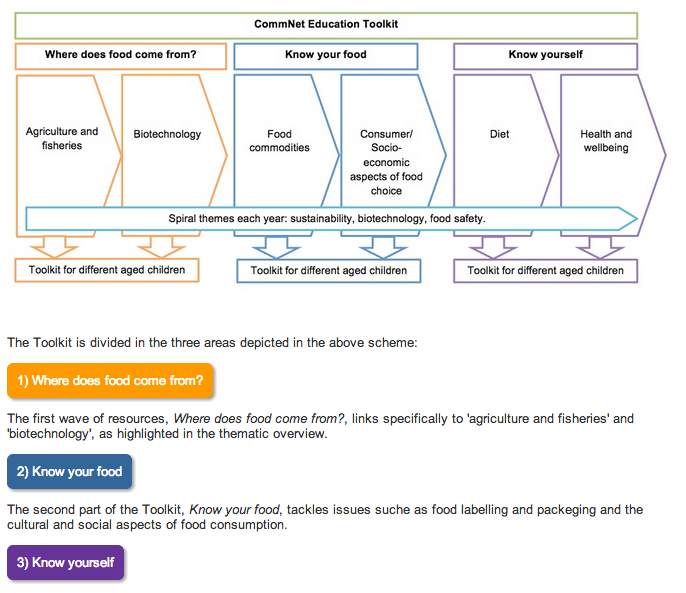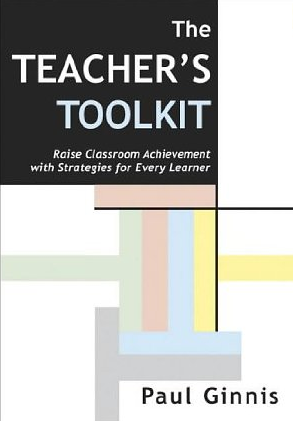 The term ‘toolkit’ in relation to the resources available to teachers is becoming increasingly popular. One of the earliest and best-known resources for teachers named as a toolkit may have been Paul Ginnis’ book The Teacher’s Toolkit. In an email interview with us, and in response to a question related to the use of the term toolkit, Ginnis stated:
The term ‘toolkit’ in relation to the resources available to teachers is becoming increasingly popular. One of the earliest and best-known resources for teachers named as a toolkit may have been Paul Ginnis’ book The Teacher’s Toolkit. In an email interview with us, and in response to a question related to the use of the term toolkit, Ginnis stated:
“I don’t think there were any other ‘toolkits’ at the time. My book did seem to start a trend – ‘The Trainer’s Toolkit’, ‘The Literacy Toolkit’ etc. followed afterwards.” (June, 2014)
Ginnis’ book relates to classroom strategies (in any subject area) as do many other toolkits.
For example, the the web-based toolkit called ‘the teachers toolkit’ provides a range of tools categorised under headings of, for example, classroom management, checks for understanding and games.
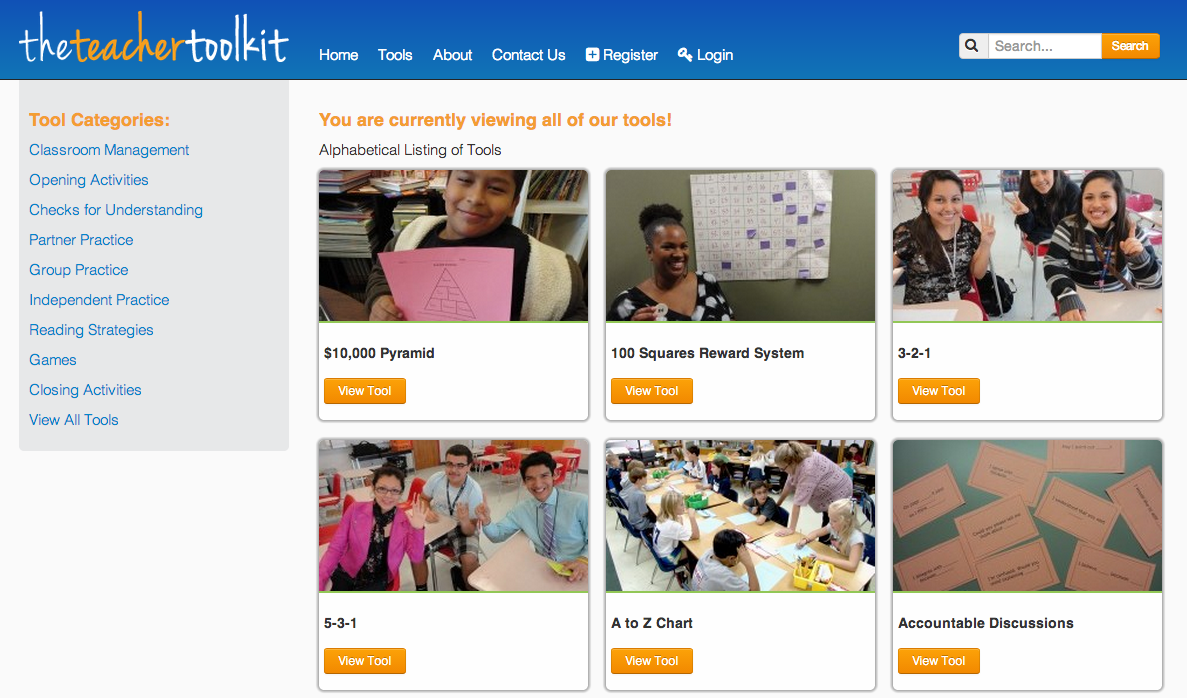
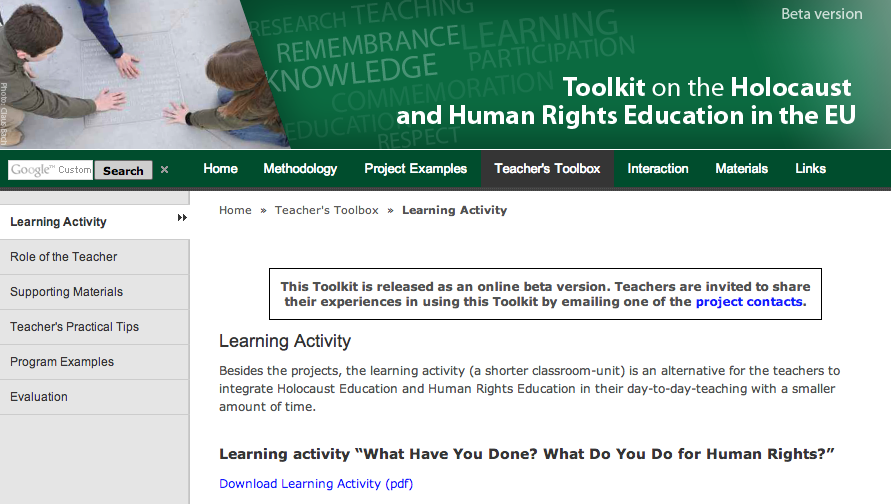 A range of projects funded by the EU under FP7 have put together toolkits. For example, the Fundamental Rights Agency (FRA) and Yad Vashem developed a toolkit on the Holocaust and Human Rights Education in the EU, which they describe as
A range of projects funded by the EU under FP7 have put together toolkits. For example, the Fundamental Rights Agency (FRA) and Yad Vashem developed a toolkit on the Holocaust and Human Rights Education in the EU, which they describe as
“a practical guide for teachers and educators who wish to develop teaching projects, by linking Holocaust and human rights. In addition, some examples of teaching projects and learning activities of Holocaust Education and Human Rights Education are provided in the Toolkit.”
CommNet is a network of communication for EC-funded food-related research. It has produced, amongst other things, a toolkit for use by teachers. They state:
“We are creating a toolkit which includes a series of targeted resources on topics around food, fisheries, agriculture and biotechnology. The toolkit links to research outcomes and includes videos, teaching materials and eSeminars for teachers. The materials are designed for young people aged 5-16 years.”
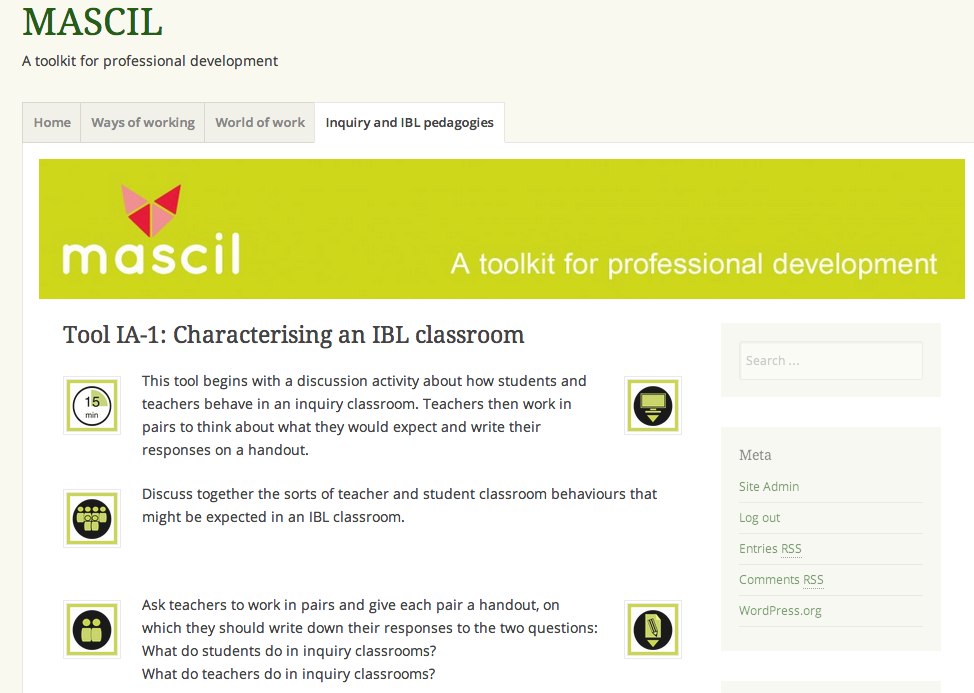 Mascil is an EU consortium that promotes inquiry learning, related to the world of work, in mathematics and science. Some of FaSMEd’s partners (Univeristy of Nottingham, HiST and Freudenthal Institute) are involved in Mascil and one partner was responsible for the design and content of a toolkit aimed at coordinators (or facilitators, multipliers) of professional development of teachers (Mascil, n.d.). This toolkit provides tools for use within professional development meetings supported by presentations, handouts, links to relevant videos or web sites and suggestions for next steps. Mascil explains:
Mascil is an EU consortium that promotes inquiry learning, related to the world of work, in mathematics and science. Some of FaSMEd’s partners (Univeristy of Nottingham, HiST and Freudenthal Institute) are involved in Mascil and one partner was responsible for the design and content of a toolkit aimed at coordinators (or facilitators, multipliers) of professional development of teachers (Mascil, n.d.). This toolkit provides tools for use within professional development meetings supported by presentations, handouts, links to relevant videos or web sites and suggestions for next steps. Mascil explains:
“The toolkit is designed to support these groups [of teachers] by providing a flexible resource to allow them to explore new and innovative teaching practices. It can be used in a totally flexible way that allows groups to work on aspects of teaching that they have prioritised or it can be used to provide a carefully planned training course.”
